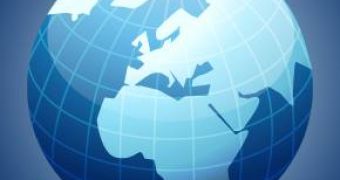The Internet is changing all the time, not that this is a surprise to anyone, but some of the recent trends are beginning to be worrying. While the Internet started out with the promise of free access to information, free expression and speech, it is now becoming more and more regulated and even censored. The efforts from dictatorial regimes around the world to plug the 'leak' the web creates are becoming increasingly sophisticated, but even more worrying is that, seemingly, democratic countries are putting in place laws and regulations that severely impede the freedoms provided by the Internet, as the latest Reporters Sans Frontieres (Reporters Without Borders) Enemies of the Internet report shows.
The report lists the countries where freedom of expression online is greatly restricted. The worst offenders, 12 countries, are grouped together under the 'Enemies of the Internet' label and these are the places where Internet access is either very hard to come by or is heavily filtered. The 12 countries, none of which is a surprising inclusion, are: Saudi Arabia, Burma, China, North Korea, Cuba, Egypt, Iran, Uzbekistan, Syria, Tunisia, Turkmenistan, and Vietnam.
However, the journalism advocacy organization also maintains a second list of "under surveilance" countries, where things aren't as bad as in the one above, but where Internet access isn't as free as it should be. Two countries on this second list stand out, partly because it's the first time they've been added, but mainly because they are, for all (other) intents and purposes, democracies.
"Among the countries 'under surveillance' are several democracies: Australia, because of the upcoming implementation of a highly developed Internet filtering system, and South Korea, where draconian laws are creating too many specific restrictions on Web users by challenging their anonymity and promoting selfcensorship," the report says.
Things are rapidly deteriorating in Australia, where the government seems bent on enforcing Internet censorship laws despite public outcry, studies pointing out to the ineffectiveness of the move, huge economic costs and against common sense. Another country quickly following in its footsteps and one that we'll likely see in next year's "Enemies of the Internet" report if things continue to go on their current course is Italy, which has been making some very backwards decisions lately.

 14 DAY TRIAL //
14 DAY TRIAL //